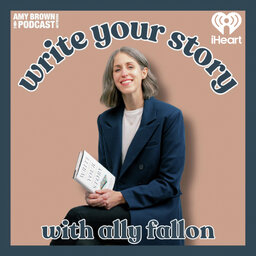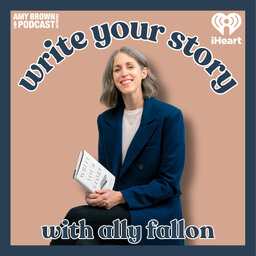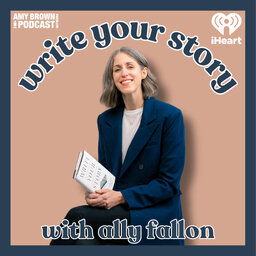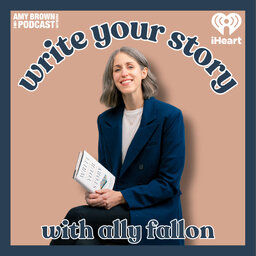AMBER RAE: The Feelings Journal and How to Use Your Emotions For Growth
Do you ever have feelings that seem inconvenient or even overwhelming to you? Anger, sadness, fear, depression. What if you could use those feelings as a tool for your own growth by writing about them? That’s exactly what my guest today helps you do with a super practical tool she created out of her own story. Come learn about alchemizing your feelings with Amber Rae and check out the Feelings Journal HERE: https://www.amberrae.com/
 Write Your Story with Ally Fallon
Write Your Story with Ally Fallon


